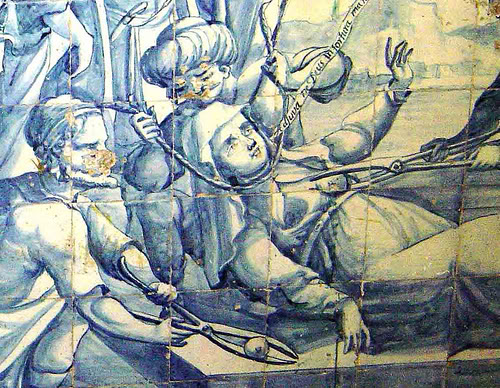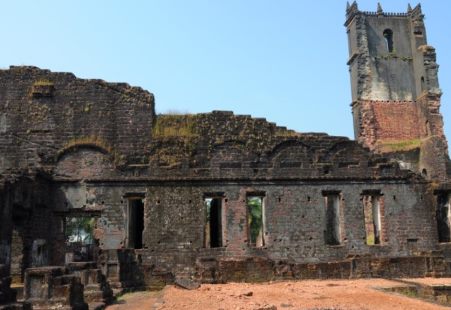DNA confirms remains found in Goa belong to Queen Ketevan

An arm bone retrieved from the pieces of a stone sarcophagus found in the ruins of the Augustinian church in Goa, India, seems to belong to the Georgian Martyr Queen Ketevan. Centre for Cellular and Molecular Biology (CCMB) in Hyderabad isolated DNA from the bone. Analysis of mitochondrial DNA from the bone suggests its much more likely to have come from a Georgian than an Indian, providing a tantalizing clue that it could be Queen Ketevan's.
"In order to find the distribution of U1b haplogroup in India, we have surveyed mitochondrial DNA sequence of 22,000 individuals from the sub-continent but none of them belongs to U1b haplogroup. However, two out of 30 Georgians, analyzed have the same haplogroup, suggesting that the bone excavated in Goa is likely to be the remnant of Queen Ketevan of Georgia, said Dr. K.Thangaraj in the interview to the Indian "The Hindu.
The study also has been published online recently in Mitochondrion journal. According to the publication of the Archaeological Institute of America, www.archeology.com, an arm bone "likely belonged to Ketevan.
 Since 1989, various delegations from Georgia have worked together with the Archaeological Survey of India (ASI) to locate Ketevan the Martyrs relics within the Augustinian church which was founded in 1572.
Since 1989, various delegations from Georgia have worked together with the Archaeological Survey of India (ASI) to locate Ketevan the Martyrs relics within the Augustinian church which was founded in 1572.
Ketevan was the queen of Kingdom of Kakheti, East Georgia. In 1613, the emperor of Persia, Shah Abbas led an army to conquer the Georgian kingdom and Queen Ketevan became his hostage. The queen was held in Shiraz, southern Iran for approximately ten years, but in 1624, the emperor sent soldiers to convert her to the Islamic faith and to force her into his harem. After refusing to comply, she was tortured and strangled to death on 22 September 1624 in Persia. She was canonized by the Georgian Orthodox Church.
 Tweet
Tweet  Share
Share